Promoted from the diaries
Among the other stories that surfaced in the news yesterday, I found out that former 14 year-old conservative wunderkind Jonathan Krohn, he of the book Define Conservatism and the CPAC 2009 speech, has now defected. Though he asserts, according to Politico, “I want to be Jonathan Krohn…and I’m tired of being an ideology, and it’s not fun and it gets boring and it’s not who we are as individuals,” it’s easy to tell from his positions that he’s essentially a Liberal now. He favors same-sex marriage, he likes Obamacare, and he says he’d vote for Obama this year, if he was old enough to vote. Per the same Politico article:
“One of the first things that changed was that I stopped being a social conservative,” said Krohn. “It just didn’t seem right to me anymore. From there, it branched into other issues, everything from health care to economic issues.… I think I’ve changed a lot, and it’s not because I’ve become a liberal from being a conservative — it’s just that I thought about it more. The issues are so complex, you can’t just go with some ideological mantra for each substantive issue.”
It’s saddening, to be sure, but I can’t say it’s all that surprising. As kids grow up, they tend to question the views their parents handed to them. Some arrive at the same conclusions, some don’t, and some flirt with the other side before seeing the wisdom of what they taught. It remains to be seen which of the latter two categories Krohn will fall into, though I certainly hope it is the last one (and I’m sure I’m not alone).
The blog Caffeinated Thoughts has a post up that should be required reading for people exploring this story. Per them:
Politico’s ability to state that Krohn’s moving in his late teens while reading German philosophy is “bucking trends” is beyond absurd. Moving left as you enter your college year particularly if you read German philosophy. It’s so cliched that the Independent 1980s Christian film Geronimo included this as a major reason for the main character’s drift. The point about being growing more conservative is that you grow more conservative as you live life: get married, have kids, and start paying taxes, not that you become more conservative between puberty and learning to drive.
It’s true, but even more important is this cautionary point: “Of course, the only reason Krohn’s ‘ideological evolution’ is news now is the gusto with which conservatives embraced him.” We place these prodigies up on a pedestal, and when they end up crumpling under the pressure as they work their own thoughts out for themselves, it becomes news. We find ourselves with egg on our faces.
Caffeinated Thoughts links to another post by the same author back when Krohn made his debut at CPAC where he discusses the fates of similar teen conservative pundits. It, too, is worth reading:
Kyle Williams is perhaps the most obvious example. He began writing for WorldNetDaily.com in 2001 at age 12 and also had a book published. He got in a speech at the National Press Club and a few TV interviews before he mostly disappeared, except for his weekly article for WND every Saturday.
I read Williams’ column with interest, but it began to take a turn towards the end. My wife remarked, “Someone that young shouldn’t be this cynical.” Williams went from conservative cheerleading to dishing on conservatives and their causes. Williams was struggling with who he was, what he believed, and what he wanted to do with his life in front of an audience of thousands. Williams ended his column in 2005 at the age of sixteen.
Another teenager, Hans Zieger, began a column at age seventeen and ended up writing for WorldNetDaily.com as well. He had a unique focus on issues relating to the liberal assault on the Boy Scouts and wrote a book on the topic, as well as another one called Reagan’s Children. He “retired” at twenty-one at the end of 2006, declaring, “I don’t know enough to be weekly offering my opinions as though possessed of some eminence.” Zieger is now a senior fellow at the American Civil Rights Union, a conservative alternative to the ACLU.
To my knowledge neither has defected from conservatism–indeed, the post notes that Zieger is now with a conservative organization–but the point still stands. People like Krohn, Williams, and Zieger, at the time, were still working out their beliefs. As I have said earlier, and I’m sure it’s fairly obvious, as a child progresses through his teen years, it’s not unusual to question the things you are taught. We ought to avoid feting them as the next great hope and placing such a spotlight on them. Instead, we should quietly and gently encourage them along in their search for the truth. We should show them the great conservative thinkers–people such as Burke, Bastiat, de Tocqueville, Hayek, T.S. Eliot, Robert Nisbet, and Russell Kirk–and how they dealt with the great philosophical questions. When they question their beliefs, we ought to engage them to find out why they question.
This is not to say that they shouldn’t be recognized as intelligent kids, but elevating them into the spotlight to such a degree is harmful to them and runs the great risk of embarrassing us. I can only imagine the kind of embarrassment it would be had we given a young Goldwater Girl named Hillary Rodham such attention back in the day.
Before I close, I’d like to speak a bit about myself. Growing up, I was a young conservative (and at almost 23, I still am a young conservative). I grew up in a household that was engaged in politics, though my parents certainly weren’t activists. I first really became interested in politics at the age of 11 with the 2000 election and the fiasco it produced, and 9/11 only steeled my resolve to follow politics. It wasn’t until I began researching the details of President Bush’s NSA wiretaps, though, that I truly became involved.
Of course, like many teens, I began trying to establish just what it was I believed, but I never really flirted with Liberalism. I think the credit for keeping me away from that goes mainly to my discovery of Barry Goldwater’s The Conscience of a Conservative followed by my reading of Friedrich von Hayek’s The Road to Serfdom. Since then, I’ve read books by Russell Kirk, Milton Friedman, Frederic Bastiat, and so many others (my main regret is that I haven’t finished all of them!). Currently, I am perusing a volume of Canadian Prime Minister Wilfird Laurier’s early speeches. He was a classical liberal, and he articulates his beliefs better than all but a few others.
As for philosophy, I’ve read parts of Kant (something I will try to avoid doing again–he is a poor writer), Montesquieu, Baron d’Holbach, Rousseau, and Locke, among others. Though I find great value and enrichment in many of them, whether I agree with much of what they say or not, I nevertheless find myself agreeing with the founder of the Scottish School of Common Sense, Thomas Reid (pdf):
The man who first discovered that cold freezes water and that heat turns it into vapour was using the same general principles and the same method as Newton did in his discovery of the law of gravitation and the properties of light. His regulae philosophandi [= ‘rules for scientiic and philosophical thinking’] are maxims of common sense, and are practised every day in common life; and anyone who philosophizes by other rules, whether concerning the material system or the mind, will get nowhere.
Conjectures and theories are created by men, and will always be found to be very unlike the things created by God. If we want to know the works of God, we must consult them with attention and humility, not daring to add anything of our own to what they declare. An accurate interpretation of nature is the only sound and orthodox philosophy; anything we add to that is spurious and carries no authority.
All our ingenious theories about the formation of the earth, the generation of animals, the origin of natural and moral evil, when they go further than what can be soundly derived from facts, are empty folly, as much so as the ‘vortices’ of Descartes and the ‘Archæus’ of Paracelsus. The philosophy of the mind may have been as much adulterated by theories as has the philosophy of the material world. The theory of ideas is indeed very ancient, and has been very widely accepted; but neither age nor acceptance can give it authenticity, so they oughtn’t to shelter it from being examined freely and frankly—especially at the present time, when the theory of ideas has produced a system of scepticism that seems to triumph over all science and even over the dictates of common sense.
This is not to say philosophy doesn’t have its value (and Reid wouldn’t argue that it does), but the problem with many philosophers is, quite simply, they overthink things. Once you lose touch with reality, dangerous things can happen
When I first joined RedState back in October of 2006 (after lurking for months), I had ambitions of being a great blogger. Though, to some extent, I still wish to be one today, I am grateful than I labored and learned in obscurity. It gave me time to figure out my thoughts and articulate my views in a better and more authentic way than I would have at the age of 17. Indeed, reading over my early posts, especially those from before we jumped to the current site, reflects a real evolution and maturation in my thought process, in my opinion. It’s gone from “Hey, look at this cool video/article I found” to being able to articulate a coherent and (hopefully) well-written statement as to why it’s important, in addition to putting down my own point of view. The time I spent in the shadows allowed me to work out what I believed with out the burning bright light of the spotlight shining down on me, and I think, overall, it benefited me.
I’ll close with one final piece from the Caffeinated Thoughts post I linked to earlier:
But for me the story of Jonathan Krohn proves to me that years of frustration and obscurity may be good for the young political wanna be pundit. Perhaps, it’d be well if before a young person earns a platform to express themselves nationally that they actually have grown enough to know who they are. My political life was spent doing a lot of listening and a lot of working for unborn children outside of abortion clinics not going on Hannity, and I can’t help but think that’ s healthier.
[…]
I don’t think that young interested people should be discouraged from being involved in politics. They should be involved, but they should do so in a quiet way, right on a blog, right for an ezine. Don’t parade them around in front of three thousand activists and millions on television because they happen to be under 18. It’s not the duty of sincere attention-seeking kids to make these boundaries, but it falls to activists, conservative media, and especially parents.
It’s food for thought for the next time we encounter a situation like this.


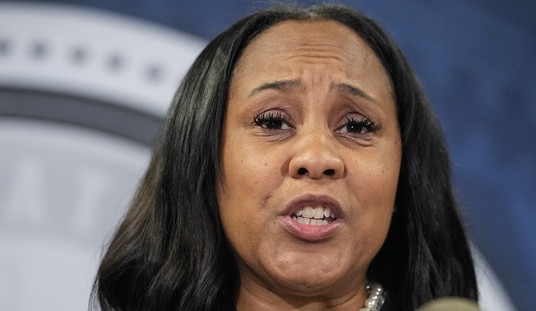
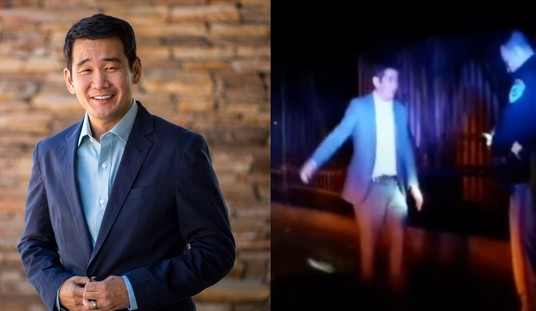


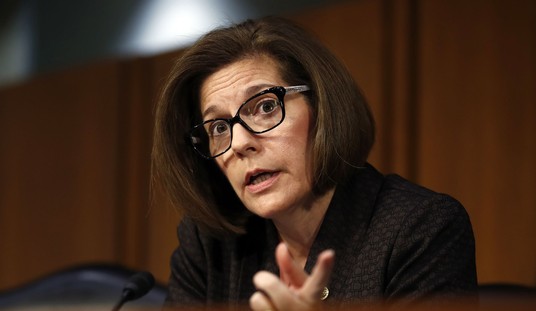


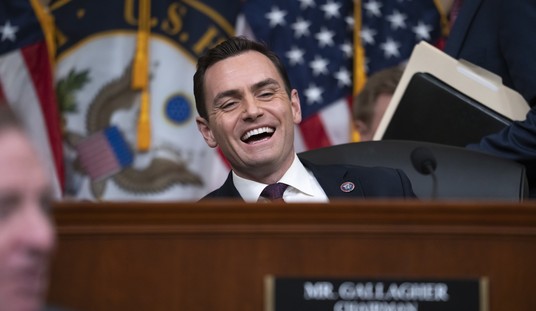
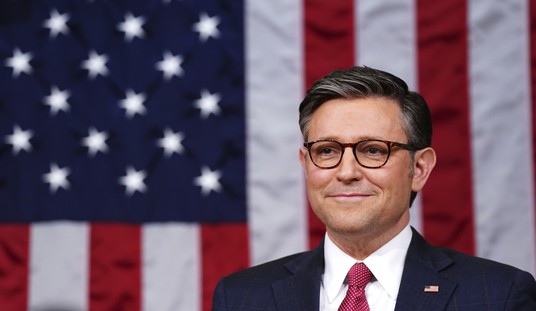
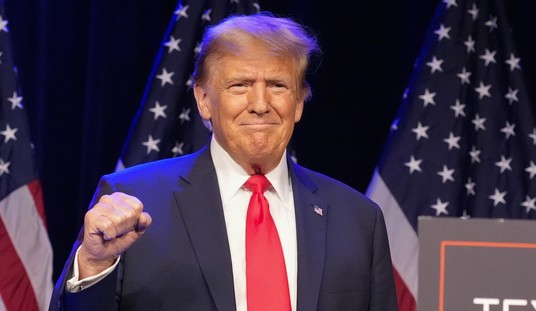
Join the conversation as a VIP Member